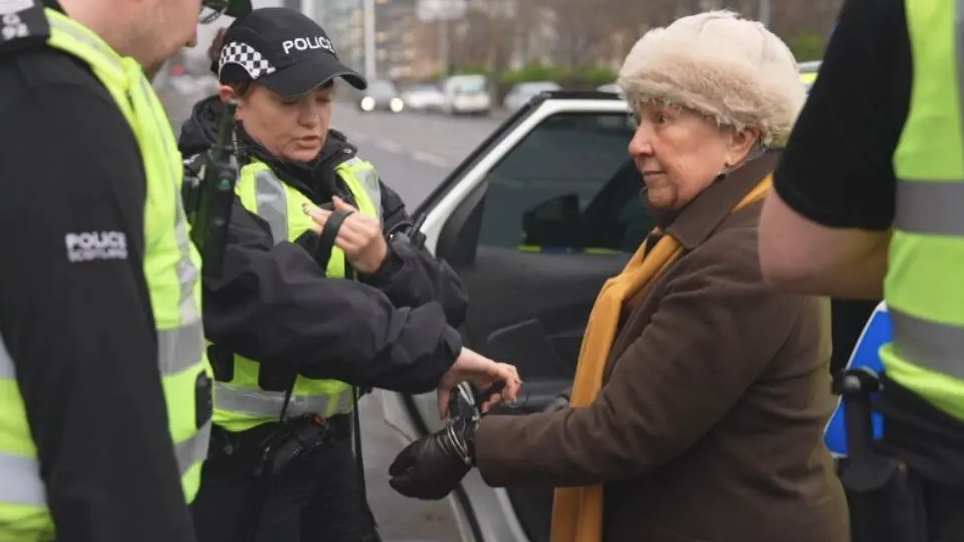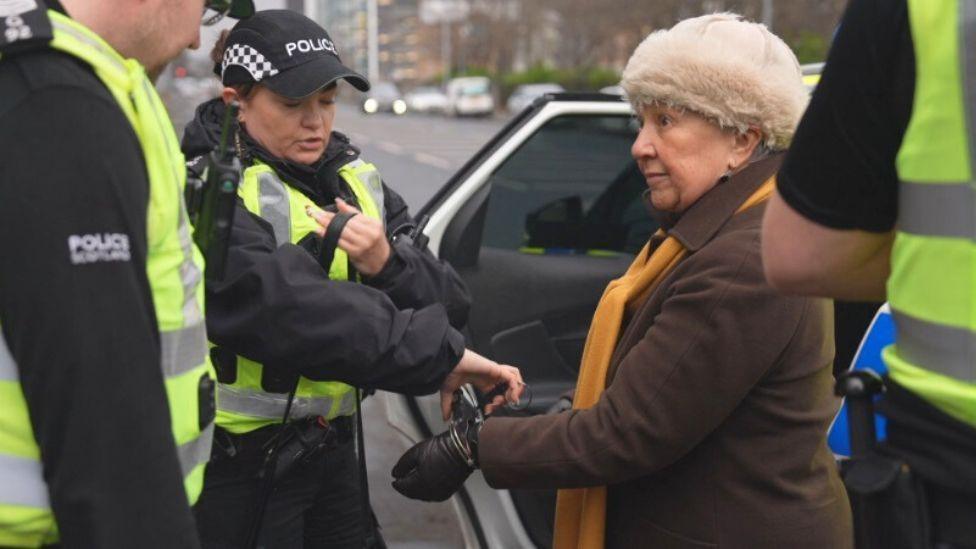Anti-abortion campaigner arrested for second time
Anti-abortion campaigner Rose Docherty is arrested for second time
- Published
A 75-year-old woman has been arrested for a second time for taking part in an anti-abortion protest outside a hospital in Glasgow.
Rose Docherty was detained on Hardgate Road, outside the Queen Elizabeth University Hospital, on Wednesday while carrying a placard which stated "Coercion is a crime, here to talk, only if you want."
She was arrested, charged and released on bail under a new law that created buffer zones outside Scottish abortion clinics.
Ms Docherty was the first person to be charged under the law following a similar protest in February. She was issued with a warning but faced no further action.
Reacting to her arrest, she said: "Everybody has the right to engage in consensual conversation.
"I held my sign with love and compassion, inviting anyone who wants to chat, to do so – and stood peacefully, not approaching anyone.
"I should not be treated as a criminal for inviting people to chat with me – lending a listening ear. Conversation is not forbidden on the streets of Glasgow, and yet this is the second time I have been arrested for doing just that."
Rose Docherty says she would accept jail time for breaching abortion buffer zone
A Police Scotland spokesperson said: "Officers attended and a 75-year-old woman was arrested and charged in connection with a breach of the Safe Access Zone legislation."
Ms Docherty previously told the BBC's Scotcast that she would have been prepared to go to prison over her first arrest.
Doctors at the Queen Elizabeth University Hospital told BBC Scotland News that the protests, which have been held outside the hospital for nearly 10 years, were upsetting and intimidating for patients and staff.
The Abortion Services (Safe Access Zones) Act, external came into force last September.
It was drawn up by Scottish Green MSP Gillian Mackay, who said women seeking the procedure were subjected to "totally unacceptable abuse and obstruction" outside hospitals.
It is a criminal offence to behave in ways that could influence the decisions of women and staff to access services within the buffer zones.
Stopping women and staff from entering the clinics or otherwise causing alarm, harassment or distress is also an offence.
Anyone who breaks the buffer zones law could be fined up to £10,000 or an unlimited amount in more serious cases.
More on this story...
- Published15 May

- Published24 February 2023

- Published14 August
